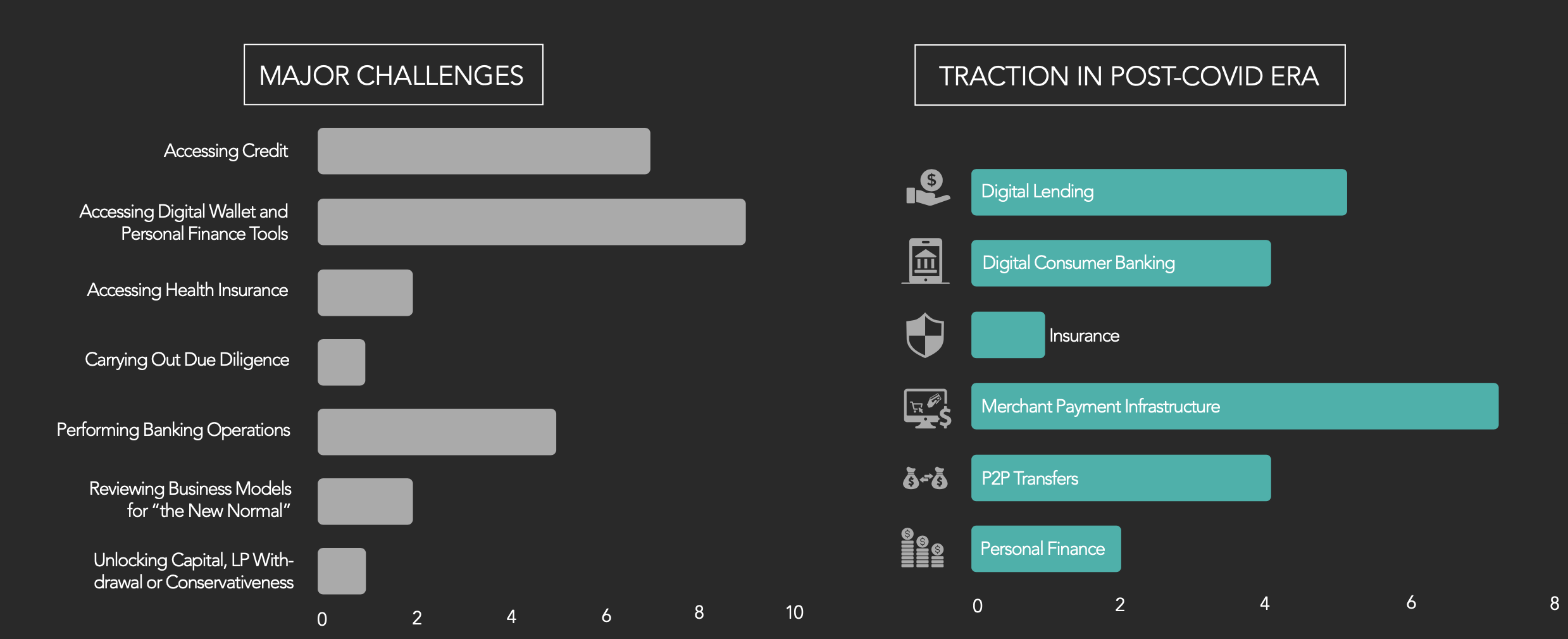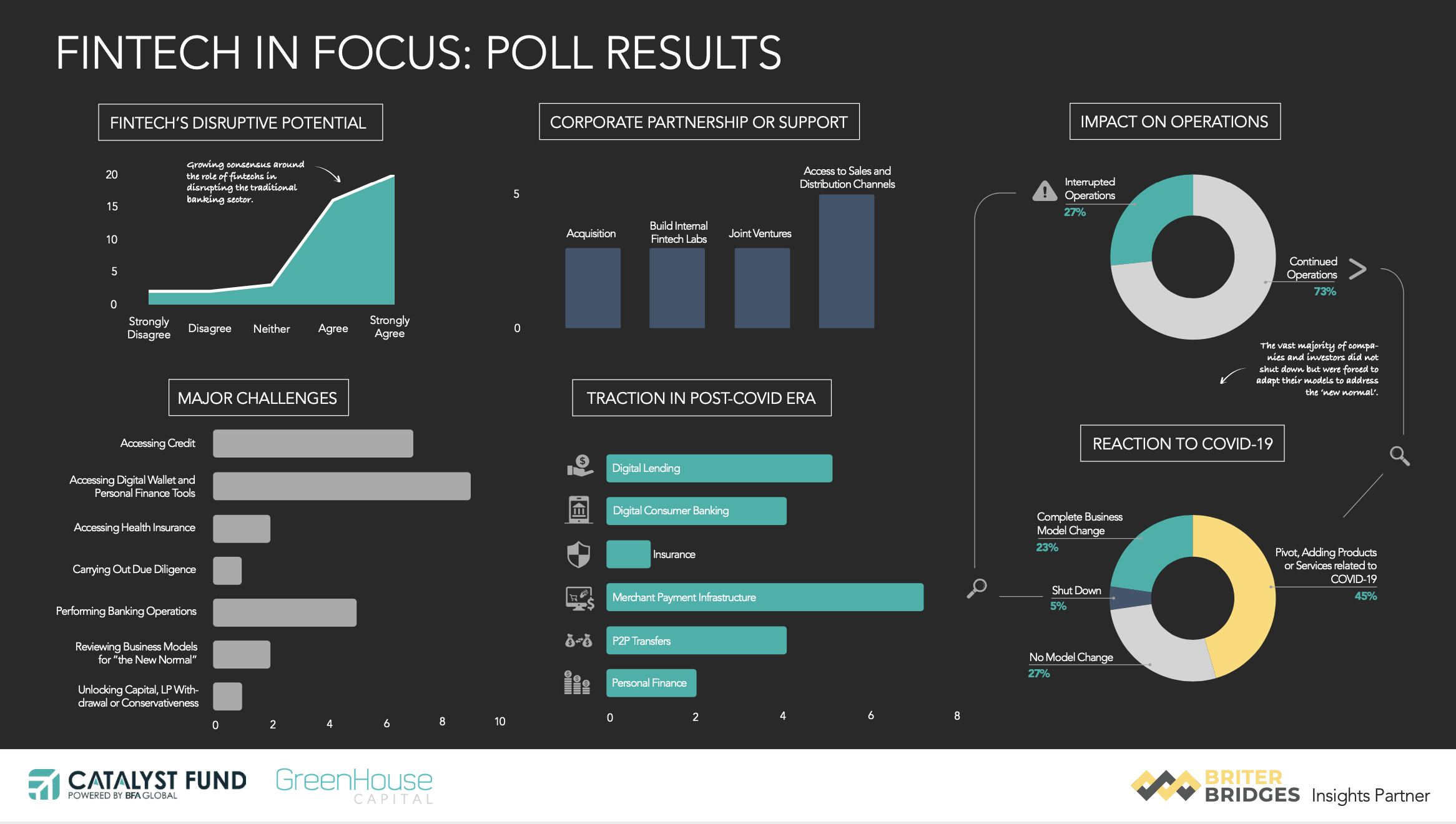Inclusive fintech startups are pioneering products for the digital generation

The digital generation (aka netizens, digital natives, generation Z, millennials) is a rapidly-growing customer segment that has exacting user experience and service expectations. As these demanding consumers mature, purchase homes, take out insurance, and invest their earnings, they are manifesting their high expectations in the realm of financial products and services. Fintech startups that are nimble and customer-centric are at the forefront of developing services, platforms and products that this growing digital generation can adopt and trust.
The opportunity to serve this segment is significant. In Sub-Saharan Africa, only 26% of youth aged 15-24 have financial accounts while mobile penetration rates are as high as 83% in countries like Kenya. This suggests that the digital generation may be inclined to bypass traditional financial products in favor of digital-first, app-based services. The potential is enormous for innovative companies willing to develop solutions for these consumers who traditional banks and lending institutions have been slow to address, or have not seen as sufficiently financially viable.
Who comprises the digital generation?
The digital native generation is the group of younger consumers (people born since 1980, who grew up using technology) who are digital-first, mobile-first, and increasingly mobile-only (using smartphones before and instead of laptops, tablets, or computers). They are often joined by digital immigrants (those born before 1980) who have adapted to technological ubiquity a bit later in their lives or careers. Together, they make up the extended digital generation that primarily buys and sells goods and services digitally, and have frequently evolved to earn their livelihood via digital platforms.
One of the most recognizable and active participants of the digital generation are gig workers, such as those who find work via ride-hailing platforms, or as delivery workers in the logistics sector. They also include a wide variety of blue-collar workers who are engaged in temporary or project-based work. They are hired to complete a particular task or for a certain period of time, and they often find these jobs via digital platforms. More than a quarter of workers currently participate in the gig economy in some capacity. For example, India has about 3 million gig workers, and 56% of new employment in India is generated by the gig economy. Similarly the Kenyan gig economy is valued at $109 million.
Financial services designed for gig workers
Fintech startups are moving to serve the digital generation and are finding opportunities throughout the gig economy and e-commerce value chain with innovative financial services. These innovations were the topic of a recent Catalyst Fund webinar panel, Fintech Innovations for the Digital Generation, part of the Fintech in Focus: Building a post-crisis future virtual conference, hosted by Catalyst Fund and GreenHouse Capital.
“There is a tremendous opportunity for startups to focus on non-traditional customer segments, to digitize transactions of these segments in a way that has not been done before.” – Aaron Fu, Head of Growth, Catalyst Fund
Members of the digital generation, specifically gig-economy workers, have unique work and income patterns. They lack permanent or consistent employment, and also lack access to formal financial services and benefits, which are usually designed for traditionally-employed workers.
Given these gaps in services, fintech startups have been quick to develop financial services for gig workers, primarily via simple digital credit products. However, as the segment grows and the startups that serve them mature, product offerings are expanding beyond credit to things like insurance, pay advance, and more. It helps that a growing infrastructure of payments rails, digital financial services, and digital IDs is providing startups with a broader and deeper foundation for their products. They have more opportunities to think creatively about how to help digital natives build financial resilience and attain their financial aspirations.

Access all data insights from Briter Bridges
Catalyst Fund companies are leading the way
One such example is the type of earnings-advance offered by Karmalife, an inclusive fintech startup in India that offers gig workers a line of credit based on their earnings. This flexible line of credit allows more relevant use cases for gig workers, such as paying for fuel, household expenditures, or financing repairs. Liquidity for this worker segment can be important in a job that requires a motorcycle or car, often requiring them to spend on petrol in order to earn.
“Gig workers need a range of financial services, not just credit. They need a mechanism to help them build financial resilience and also unlock aspirations.”- Badal Malik, Founder, Karmalife
Karmalife is leveraging unique partnerships with leading gig platforms in India to automatically and seamlessly bring blue-collar gig workers access to credit lines as well as insurance. These partnerships mean Karmalife can support their financial wellbeing from within the gig work ecosystem, rather than working from the outside.
Another Catalyst Fund portfolio company, Cowrywise, illustrates another way in which inclusive fintech startups are meeting the needs of this particular generation. Cowrywise is an app-based solution offering savings and investment products to young Nigerians. The team understands the need to adapt financial offerings, as well as the user experience of financial services, to the needs and preferences of the digital generation. The team demonstrates customer centricity not only in its culture, but also through its app and product development strategy, which includes a system for customer feedback. In fact, this open feedback loop was the inspiration for one of their latest product additions: Stash, a digital wallet.
“Being customer-centric is about being receptive and meeting customer needs at every step.”- Razak Ahmed, Cowrywise Founder
As we look toward inclusive economic recovery following the COVID-19 crisis, fintech innovators are increasingly creating solutions that have the potential to significantly improve the livelihoods and financial health of individuals and small businesses as they recover from COVID-19. These solutions come not just in the form of credit and digital transactions, but new opportunities for income generation, as well as embedded financial products and services, like savings, insurance, and investment solutions, that can help users manage their income in the long term and build resilience for the future.
“It is crucial for fintech startups to start building win-win models for themselves and their customers, which would result in making money together with the customer, and not just off of them.”- Smita Aggarwal, Impact Investor
Conclusion
The needs of the digital generation, and in particular of the gig and digital economy workers, are unique, and few products in the market are currently designed to meet the needs of this customer segment. This segment is poised to be core drivers for inclusive economic recovery in emerging markets (as demonstrated in Wuhan), and there is a significant opportunity for the development of products and services that can better improve their financial health and create a much-needed safety net for them.



